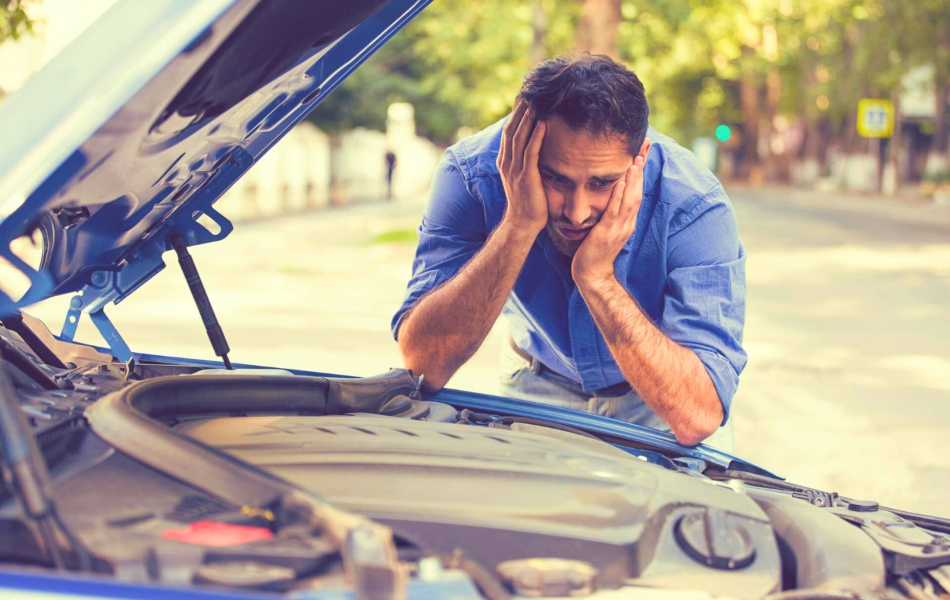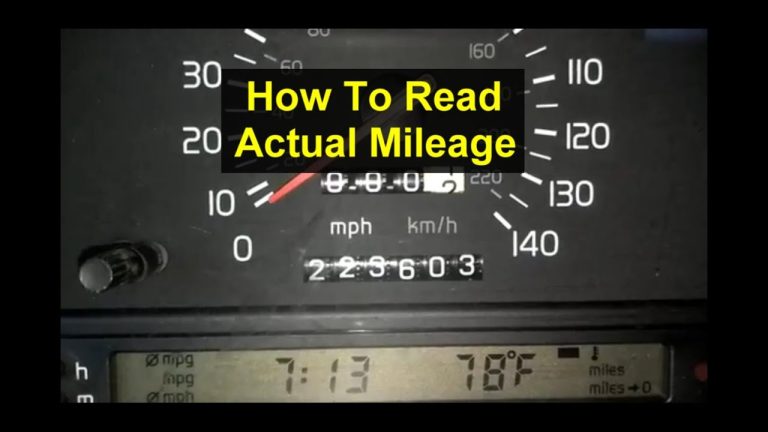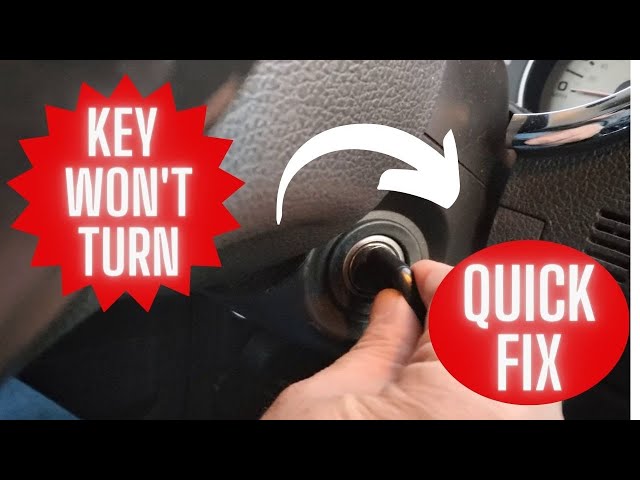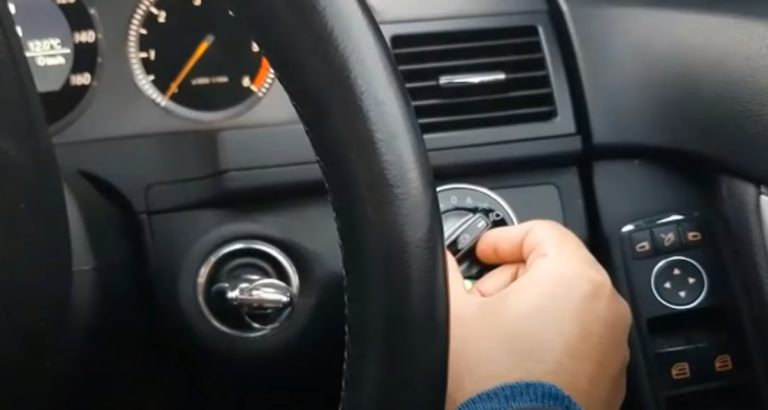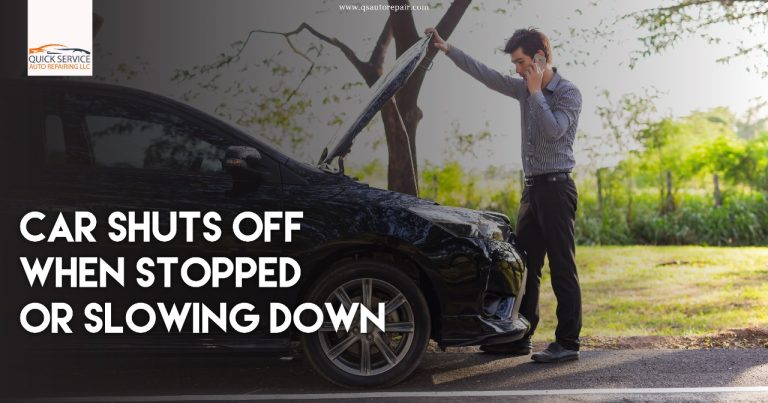Car Starting Issues Solved: Expert Tips & Solutions
There’s nothing quite as frustrating as getting into your car, ready to hit the road, only to find it refuses to start. We’ve all been there, that moment of dread when you turn the key and hear…
Nothing. It can throw off your entire day and leave you scrambling for solutions. But what if you could avoid this common frustration? What if you knew exactly what to look for and how to fix it? In this guide, we’re diving into the most common car starting issues and what they mean for you and your vehicle.
By understanding these potential problems, you’ll not only save time and stress but also potentially save money on costly repairs. So, if you’re tired of the unexpected surprises when you start your car, stick around. You’ll learn how to diagnose and tackle these issues head-on, ensuring you’re always ready to roll.
.jpeg)
Credit: woodiesautoservice.com
Car Starting Issues
Common Causes Of Car Starting Problems
We’ve all been there: you’re ready to head out, but your car won’t start. It’s frustrating and can ruin your plans. Understanding why this happens is key to preventing future issues. Let’s dive into the common causes of car starting problems.
Read More: Jeep Cherokee Won’t Start Push Button: Quick Fixes
Battery Issues
The most common culprit is the battery. If your car is clicking but not starting, it’s likely a battery issue. Cold weather can drain your battery faster than expected. Have you checked if the battery terminals are clean and tight? Ensuring a secure connection can save you a trip to the mechanic.
Fuel Problems
Low fuel can be a sneaky problem. Have you ever thought about how often you run your car on fumes? It’s risky and can cause your car to stall. Check your fuel gauge regularly and fill up before it’s too late.
Starter Motor Failures
The starter motor is vital for getting your engine running. If you hear a grinding noise when starting, it might be a worn-out starter motor. Have you experienced this noise before? It’s a clear sign to get it checked.
Ignition Switch Troubles
Your car’s ignition switch can wear down over time. If your dashboard lights up but the engine doesn’t start, the switch could be faulty. Have you ever jiggled the key in hopes it would work? This might be your cue to replace the ignition switch.
Alternator Malfunctions
The alternator keeps your battery charged. If your car starts, then dies shortly after, the alternator might not be working properly. Have you noticed your headlights dimming unexpectedly? That’s a potential sign of alternator failure.
Understanding these common causes can prevent a lot of frustration. Have you checked your car for these issues lately? Regular maintenance can keep starting problems at bay and ensure smooth drives. What’s your car’s story when it comes to starting troubles?
Battery Troubleshooting
Car starting issues often link back to battery problems. Troubleshooting your car’s battery can save time and money. Understanding the basics helps in fixing these problems.
Read More: Chevy Equinox Won’t Start But Lights Come On: Troubleshoot Tips
How To Check The Battery Charge
Start by inspecting the battery’s charge level. Use a voltmeter for this task. Connect the voltmeter to the battery terminals. A healthy battery reads around 12.6 volts. Anything below 12 volts indicates a problem.
Inspecting Battery Terminals
Dirty terminals can prevent a car from starting. Examine the battery terminals for corrosion or dirt. Clean them with a mixture of baking soda and water. Use a brush to scrub off any residue. Clean terminals ensure better conductivity.
Testing For Battery Drain
Battery drains happen due to electrical issues. Disconnect the battery and test it with a multimeter. Set the multimeter to measure amps. Connect it between the battery and cable. A high reading indicates a drain problem.
Checking The Alternator
Sometimes, the alternator might be the culprit. Test the alternator to see if it charges the battery. Start the car and measure the voltage at the battery. It should read between 13.8 and 14.2 volts. A lower reading suggests alternator issues.
Battery Age And Replacement
Old batteries lose their efficiency over time. Check the battery’s age before troubleshooting further. Most batteries last about four years. Replace it if it’s older than this. A fresh battery can solve starting problems.
Ignition System Fixes
Car starting issues often point to ignition system problems. Fixing faulty spark plugs or replacing a worn-out ignition coil can help. Regular maintenance ensures a smooth start every time.
Car starting issues can be both frustrating and inconvenient. A common culprit is the ignition system. Understanding and addressing ignition system problems can save you time and money. Let’s explore some practical fixes that can get your car back on the road.
Check The Ignition Switch
The ignition switch plays a crucial role in starting your car. If you turn the key and nothing happens, the switch might be faulty. Ensure the key turns smoothly in the ignition. If it feels sticky or doesn’t turn easily, it might be time to replace the switch.
Inspect The Spark Plugs
Worn-out spark plugs can prevent your engine from starting. Check for any visible damage or excessive wear. If you notice dark deposits or the plug appears worn, replace them. Fresh spark plugs can significantly improve your car’s ignition performance.
Look At The Ignition Coil
The ignition coil transforms the battery’s voltage into a spark. If it’s faulty, your car won’t start. Use a multimeter to check the coil’s resistance. A reading outside the manufacturer’s specification indicates it’s time for a replacement.
Examine The Starter Motor
Your starter motor is vital for ignition. Listen for a clicking sound when you turn the key. This noise often signals a problem with the starter motor. Consider having a professional inspect and replace it if necessary.
Review The Battery Connections
Loose or corroded battery terminals can interfere with the ignition system. Ensure the connections are tight and free of corrosion. Clean the terminals with a mix of baking soda and water to ensure optimal conductivity.
Have you ever experienced a car that wouldn’t start on a cold morning? It might not be the cold but rather a minor ignition issue. By understanding these components, you empower yourself to tackle car starting problems with confidence.
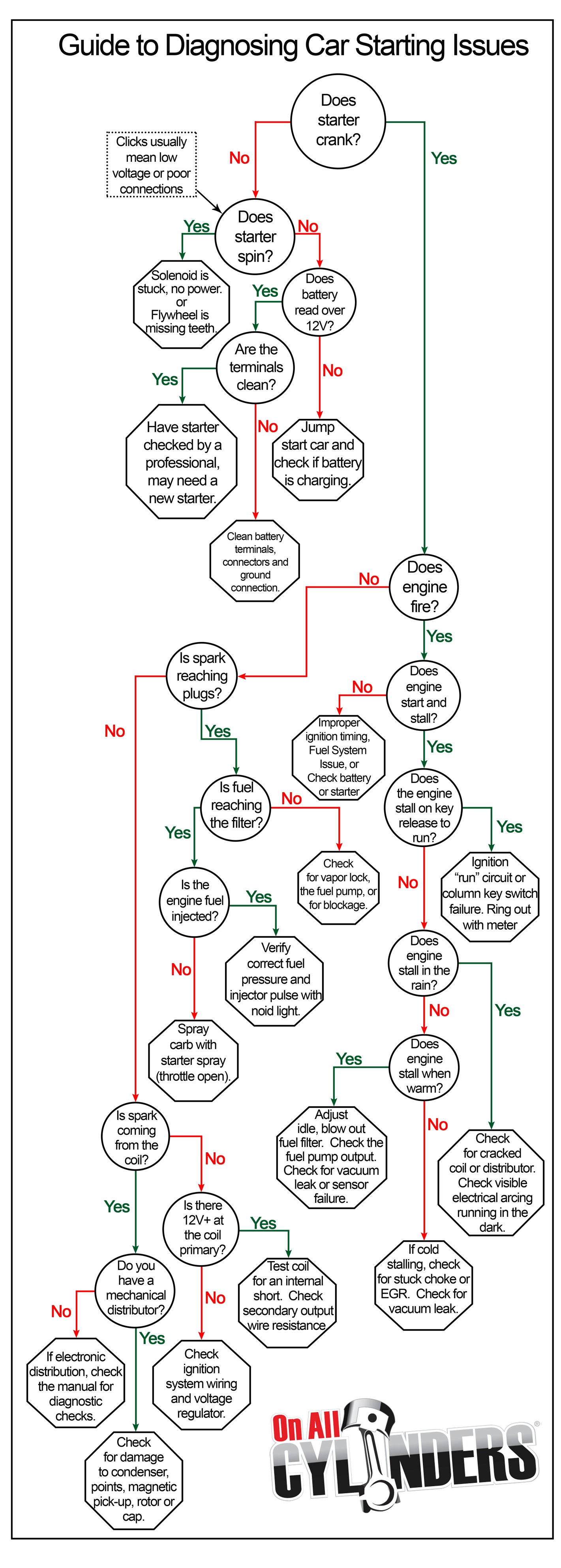
Credit: www.onallcylinders.com
Fuel System Checks
Car starting issues can often be traced back to the fuel system. Ensuring the fuel system is in good condition is crucial. It helps maintain your vehicle’s performance and reliability. Regular checks can prevent unexpected breakdowns. Let’s explore some essential checks.
Inspecting The Fuel Pump
The fuel pump delivers fuel to the engine. Listen for a soft humming sound when turning the key. No sound? The pump may be faulty. A malfunctioning pump can prevent the car from starting.
Checking The Fuel Filter
The fuel filter ensures clean fuel reaches the engine. A clogged filter restricts fuel flow. This can cause starting problems. Replace it regularly to avoid issues.
Examining Fuel Lines
Fuel lines carry fuel from the tank to the engine. Inspect them for leaks or cracks. Damaged lines can cause fuel loss. This can lead to starting difficulties.
Testing Fuel Injectors
Fuel injectors spray fuel into the engine. They must be clean to function well. Dirty injectors can cause misfires or starting issues. Regular cleaning helps maintain their efficiency.
Assessing Fuel Quality
Low-quality fuel can affect engine performance. It can cause deposits in the system. Use a reputable fuel brand. This helps prevent starting problems.
Starter Motor Solutions
Car starting issues often frustrate drivers, especially when the problem lies with the starter motor. A faulty starter motor can leave you stranded, so understanding its solutions is crucial. This section explores practical ways to address starter motor problems, ensuring your vehicle starts smoothly every time.
Diagnosing Starter Motor Problems
Identifying starter motor issues requires careful observation. Listen for clicking sounds when turning the key. If the engine doesn’t crank, the starter motor might be the culprit. Check for loose connections or corrosion on the battery terminals. These minor issues can affect the starter motor’s performance.
Cleaning Connections
Dirty or corroded connections can hinder the starter motor’s function. Clean the battery terminals with a wire brush. Ensure they are free from rust and debris. Securely tighten all connections to ensure proper electrical flow. This simple maintenance step can resolve many starting issues.
Testing The Starter Motor
To test the starter motor, use a multimeter. Measure the voltage across the battery terminals. A reading below 12 volts indicates a weak battery or faulty starter motor. Testing helps pinpoint the exact issue, aiding in efficient repairs.
Replacing A Faulty Starter Motor
Sometimes, replacement is the best solution. If the starter motor is old or damaged, consider replacing it. Choose a high-quality replacement to ensure durability. Professional installation is recommended to avoid further complications.
Preventative Maintenance
Regular maintenance prevents starter motor problems. Routinely check battery connections for signs of wear. Clean and tighten them as needed. Schedule periodic inspections with a mechanic to ensure the starter motor remains in good condition.

Credit: www.autotechiq.com
Frequently Asked Questions
What Are The Symptoms Of A Bad Starter?
A bad starter shows symptoms like a clicking sound, slow engine cranking, or complete failure to start. You might also notice intermittent starting issues or unusual noises from the starter motor. These signs indicate it’s time to check or replace your starter.
How Do You Diagnose A Car Starting Problem?
Check the battery for charge and corrosion. Inspect starter motor and ignition switch. Evaluate fuel supply and spark plugs. Listen for unusual noises. Analyze error codes with a diagnostic tool.
Why Does My Car Struggle To Start But The Battery Is Fine?
Your car might struggle to start due to a faulty starter motor, bad ignition switch, or fuel system issues. Check spark plugs or fuel pump for potential problems. Also, inspect wiring connections for corrosion or damage. Consult a mechanic for a thorough diagnosis to resolve starting issues.
How Do You Fix A Car That Has Trouble Starting?
Check the battery and connections first. Clean terminals and tighten cables. Inspect the starter motor. Ensure adequate fuel. Test the ignition system, including spark plugs and wires. Consider a professional mechanic if issues persist.
Why Won’t My Car Start?
A dead battery is a common cause. Check the battery and connections. Also, examine the starter and fuel system.
Conclusion
Car starting issues can be frustrating. Simple checks often solve the problem. Always inspect the battery and connections first. Listen for unusual noises when starting. Consider fuel levels and quality. Regular maintenance helps prevent issues. Keep essential tools in your vehicle.
A reliable mechanic can offer expert advice. Stay informed about your car’s needs. This saves time and stress. Understanding these basics empowers you. Feel confident when facing car troubles. Your vehicle deserves attention and care. Maintain it well for smooth journeys.

